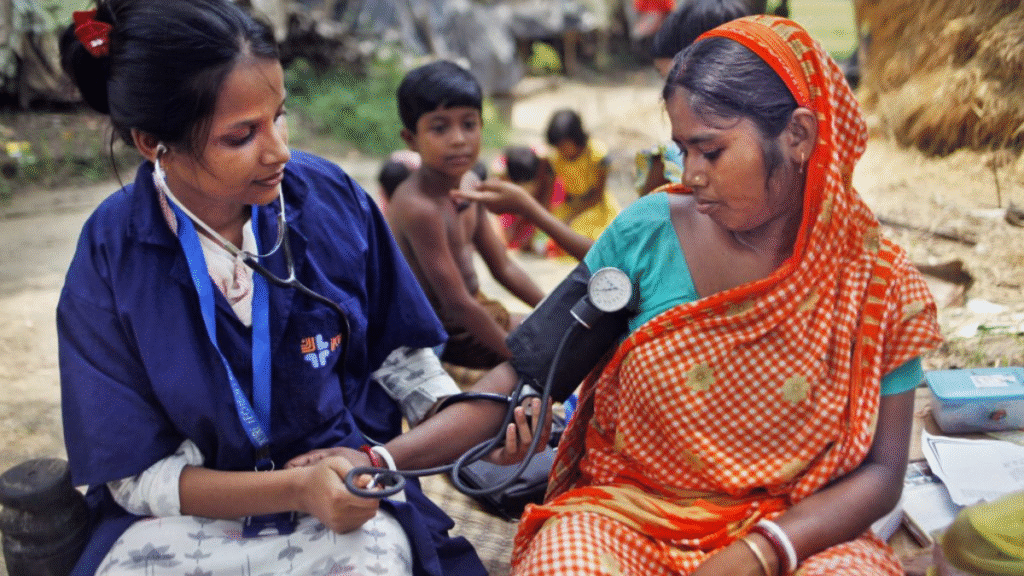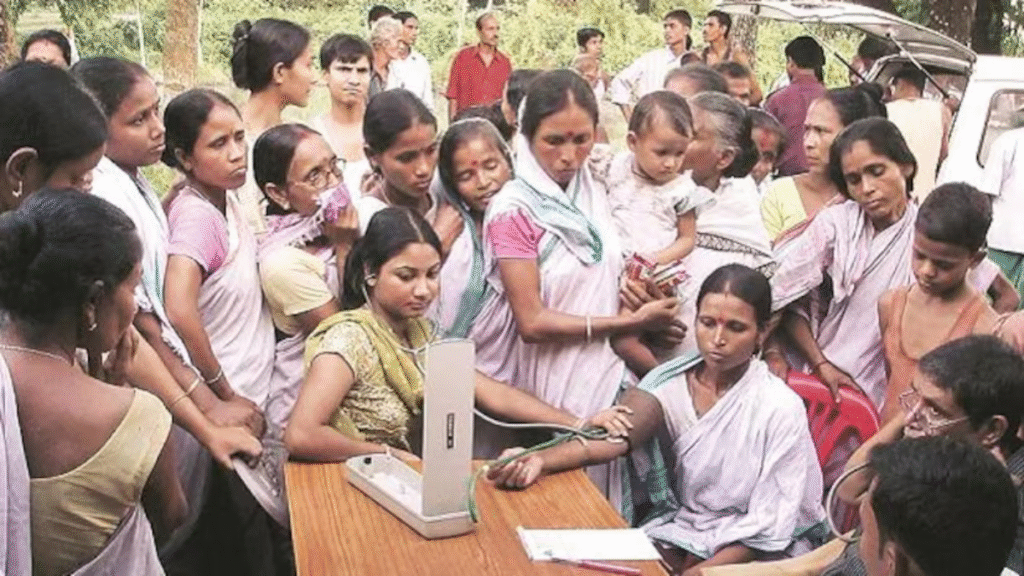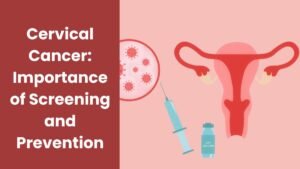Health education is also an important factor in strengthening women, especially in rural environments, as they lack access to health services and information. These women are columns in family structure – and prevent children, provide nutrition, are sanitary and take care of others.
However, due to systemic issues such as poverty, illiteracy and cultural limitations, they rarely have significant health information, resulting in preventive illness and unnecessary death. This article discusses why health education for rural women is a building block with sustainable development and is a description of how access and impact can be increased.
Understanding the Challenges
Rural women in developing and underdeveloped countries experience a special range of health issues:

- Limited access to health services: Proximity to health facilities is a barrier, as well as the fact that adequate trained professionals are not available in the countryside.
- Low health skills: Most women are not trained for nutrition, hygiene, contraceptive or disease prevention due to low formal education and awareness.
- Cultural and social norms: In most rural cultures, women are advised by talking about health problems independently, especially related to breeding or menstrual health.
- Economic obstacles: Most families cannot pay for the health care system or hospitalization, which extends women from achieving treatment.
- Gender inequality: In patriarchal cultures, women often lack their own health or control of their children.
The Significance of Health Education
Health education fills the knowledge gap and empowers women to take charge of their health and well-being. Here’s how:
A. Encourages mothers and children’s health
With proper health education, women can know the importance of birth care, good nutrition, institutional delivery and postpartum visits during pregnancy. It reduces mother and infant mortality.
B. promises family planning
Exercising women on reproductive health gives them the right to create an alternative to family size, vacancy and use of contraceptives, leading to leading and financial costs for healthy families.
C. Increases hygiene and hygiene practice
Educating women about personal hygiene, using safe water and hygiene insufficient infrastructure prevents diseases such as cholera, diarrhea and skin infections in rural areas.
D. Malnutrition
Nutrition education can prevent a high anemia, malnutrition and nutrient deficiency between the countryside between women and children. It improves immunity, development and mental development in children.
E. Gifts the right to decide
Knowledge is power. Women who are educated about health are more likely to stand for their needs, attract medical attention in time and educate other women in their local communities.
The Ripple Effect on Families and Communities
When rural women are well-educated about health, the effects spill over to the family and community as well:
- Healthier Children: Better-educated mothers are likely to immunize their children, feed them nutritious food, and obtain immediate medical attention when required.
- Economic Productivity: Healthy women are able to contribute better to the workforce or home economy.
- Better School Attendance: Girls who are educated on menstrual hygiene will not miss school when they are menstruating.
- Community Development: Women tend to inform relatives and neighbors about health, spreading awareness at the local level.
Effective Models and Programs
Some authorities and non -government initiatives have shown the ability for health learning:
- Asha workers in India: Recognized social health workers (ASHA) are trained local women who consult and educate rural families on mother’s care, vaccination and nutrition.
- Swachh Bharat Abhiyan: Cleanliness focuses on awareness of cleanliness among rural people, especially women.
- NGO initiative: NGO as SIVA and Barefoot College Community Workshops and door-to-door campaigns.
- Digital health campaign: High smartphone penetration enables rural women to learn about health using mobile applications and YouTube channels.
Incorporating Health Education into Rural Development
To ensure health education as a sustainable solution, it must be included in broader rural development plans:

- School Curricula: Incorporate reproductive and personal hygiene education in schools to initiate early awareness.
- Vocational Training Centers: Educate women about health and nutrition as part of skill development programs.
- Panchayat Involvement: Local leaders must actively encourage health programs through village-level meetings and community drives.
- Male Inclusion: Educate men too to create a supportive environment for women’s health needs.
Barriers to Implementation
Despite the benefits, a number of obstacles need to be overcome:
- Language and Literacy: Rural women are often illiterate or use local dialects, so delivering health information in culturally acceptable formats is necessary.
- Trust Issues: External providers of health education might not be trusted. Therefore, employing local teachers or community women guarantees increased acceptance.
- Sustainable Funding: Sustained success demands continued investment in training, materials, and follow-up activities.
- Technology Access: While technology is promising, it is not a substitute for face-to-face education where penetration of tech is low.
Recommendations and the Way Forward
For rural women, health education must be transformative:
- Train More Community Health Workers: Double the number of local women health education providers.
- Use creative communication units: Practice visual media, folk songs, drama and radio to convey health messages in local languages.
- Public-private participation: Voluntary organizations for funding, materials and digital innovations utilize participation with organizations in the private sector.
- Regular monitoring and response: Monitor the programs regularly and correct them according to the response from women in the countryside.
Read More:- 8 Reasons Why Regular Heath Check Ups Are Important
Conclusion
Health education is more than the prevention of illness – it is about restoring dignity, strengthening women and building healthy families and communities. This is even more important in rural communities, where women have a violation of the absence of information and absence of information.
Investing in health education among rural women means investing for the entire countries in the future. Through concrete efforts and inclusive approaches, we can close the difference in knowledge and build a society where every woman, wherever she lives, has the opportunity to enrich her.
FAQs:-
What are the common health issues faced by rural women?
Rural women often face issues like malnutrition, reproductive health problems, lack of prenatal care, and limited access to medical facilities.
What topics are covered in rural health education programs?
Topics include nutrition, sanitation, reproductive health, breastfeeding, mental health, hygiene, and disease prevention.
What government initiatives support rural women’s health education?
Schemes like Janani Suraksha Yojana, POSHAN Abhiyaan, and Mission Indradhanush promote maternal care, nutrition, and immunization.

